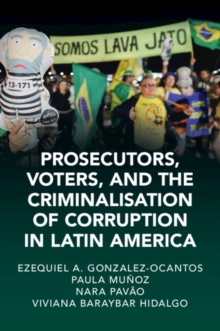
Policing for Peace : Institutions, Expectations, and Security in Divided Societies Paperback / softback
by Matthew (Saint Louis University, Missouri) Nanes
Part of the Cambridge Studies in Law and Society series
Paperback / softback
Description
In communities plagued by conflict along ethnic, racial, and religious lines, how does the representation of previously-marginalized groups in the police affect crime and security?
Drawing on new evidence from policing in Iraq and Israel, Policing for Peace shows that an inclusive police force provides better services and reduces conflict, but not in the ways we might assume.
Including members of marginalized groups in the police improves civilians' expectations of how the police and government will treat them, both now and in the future.
These expectations are enhanced when officers are organized into mixed rather than homogeneous patrols.
Iraqis indicate feeling most secure when policed by mixed officers, even more secure than they feel when policed by members of their own group.
In Israel, increases in police officer diversity are associated with lower crime victimization for both Arab and Jewish citizens.
In many cases, inclusive policing benefits all citizens, not just those from marginalized groups.
Information
-
Out of stock
- Format:Paperback / softback
- Pages:256 pages, Worked examples or Exercises
- Publisher:Cambridge University Press
- Publication Date:07/07/2022
- Category:
- ISBN:9781108969680
Information
-
Out of stock
- Format:Paperback / softback
- Pages:256 pages, Worked examples or Exercises
- Publisher:Cambridge University Press
- Publication Date:07/07/2022
- Category:
- ISBN:9781108969680










